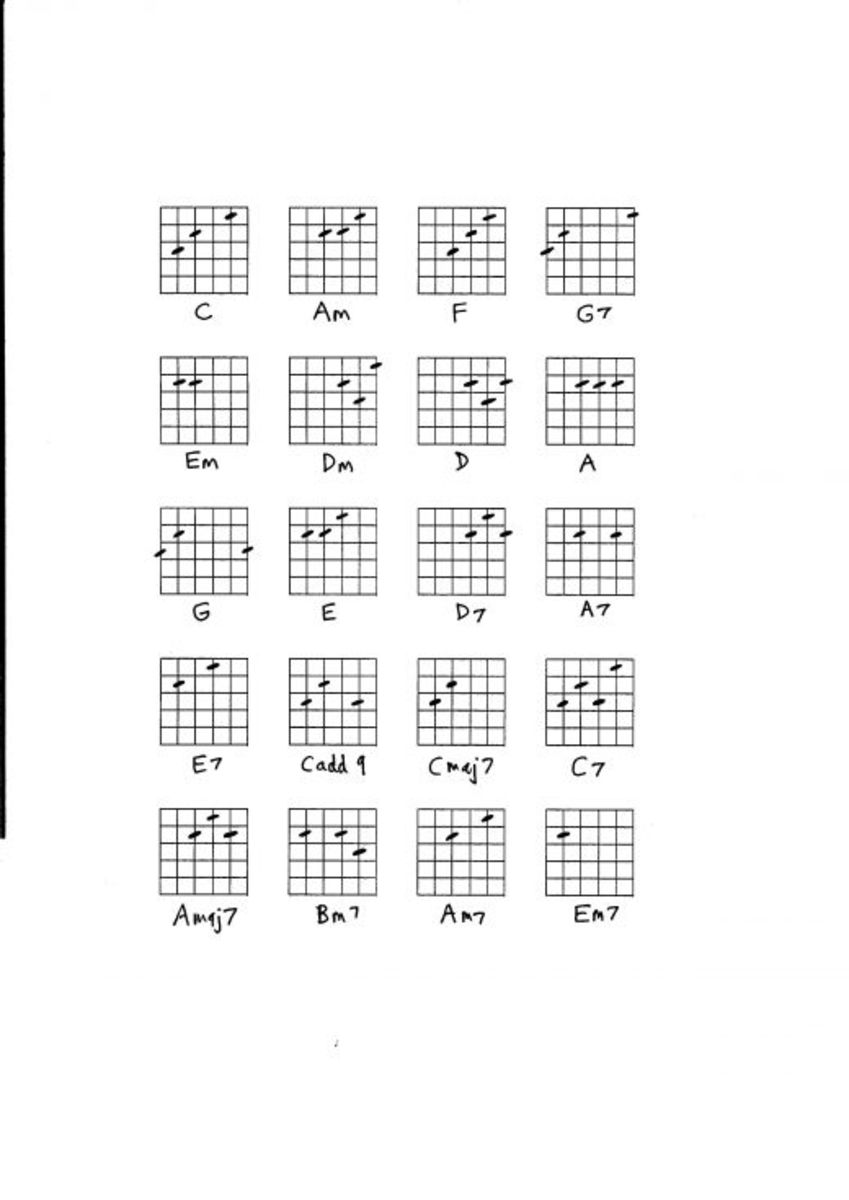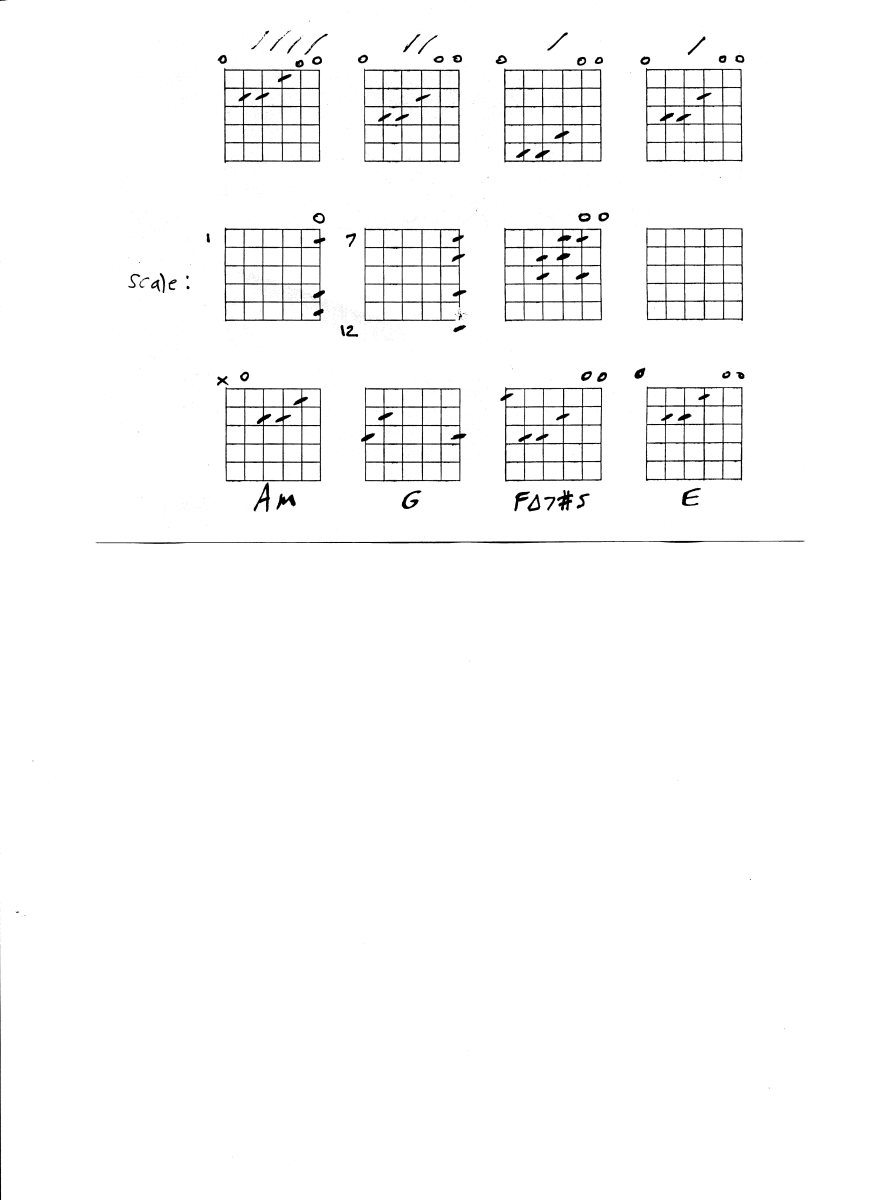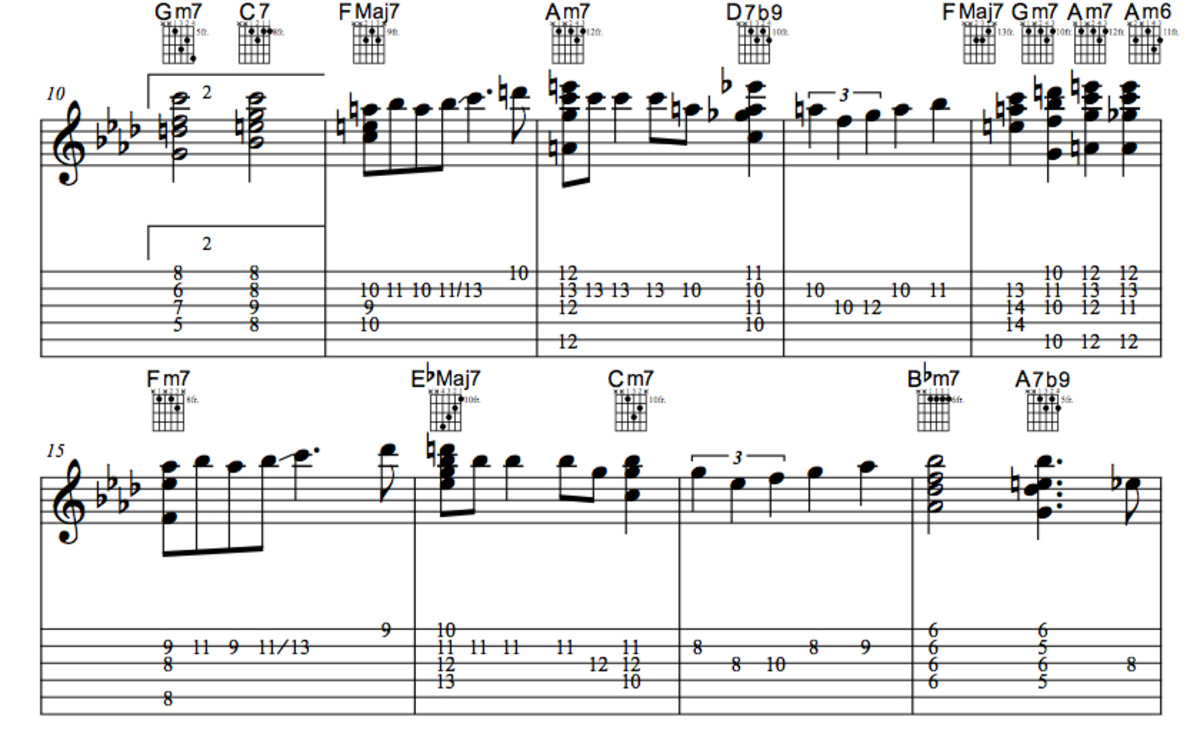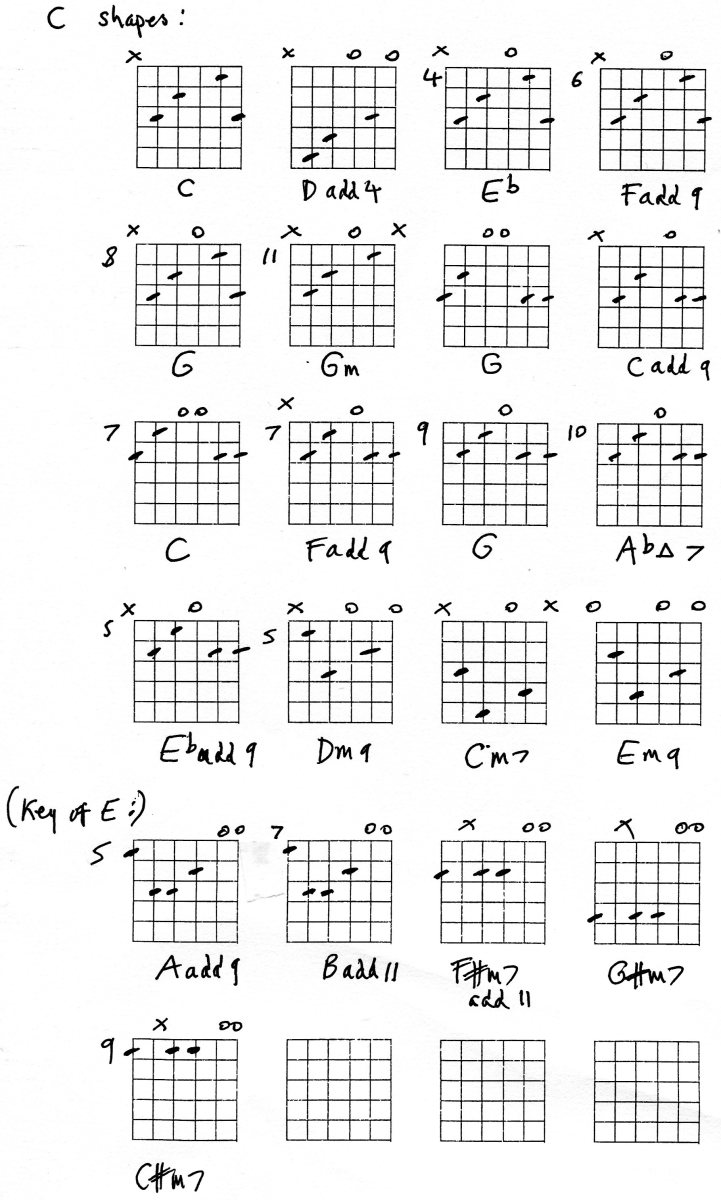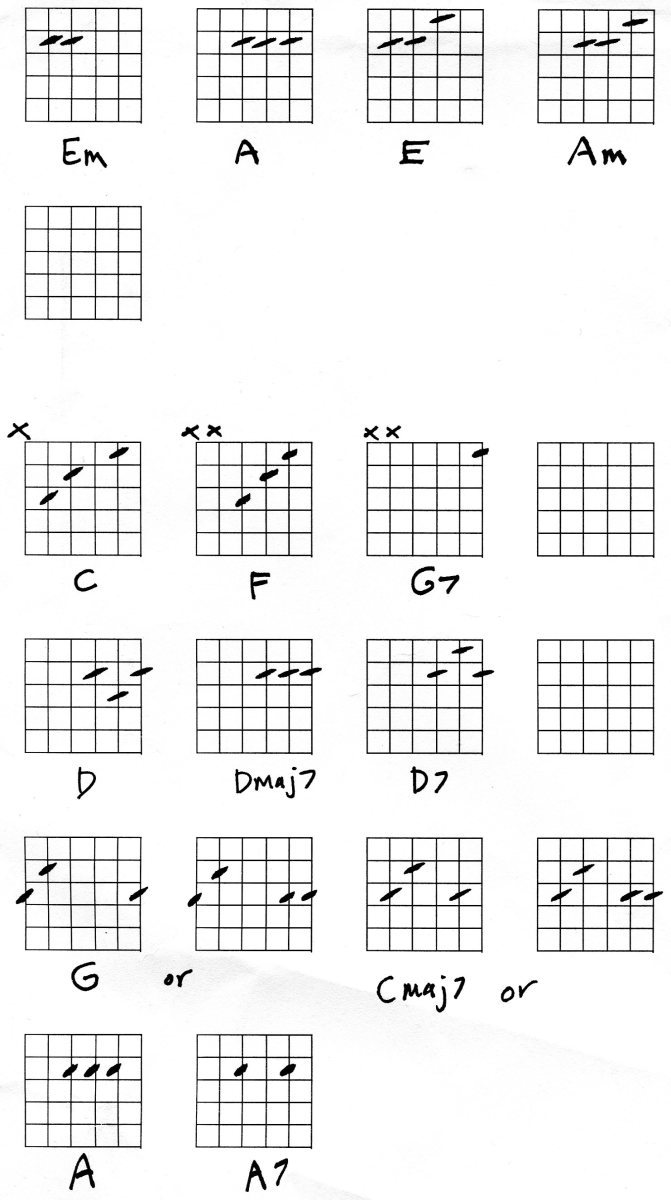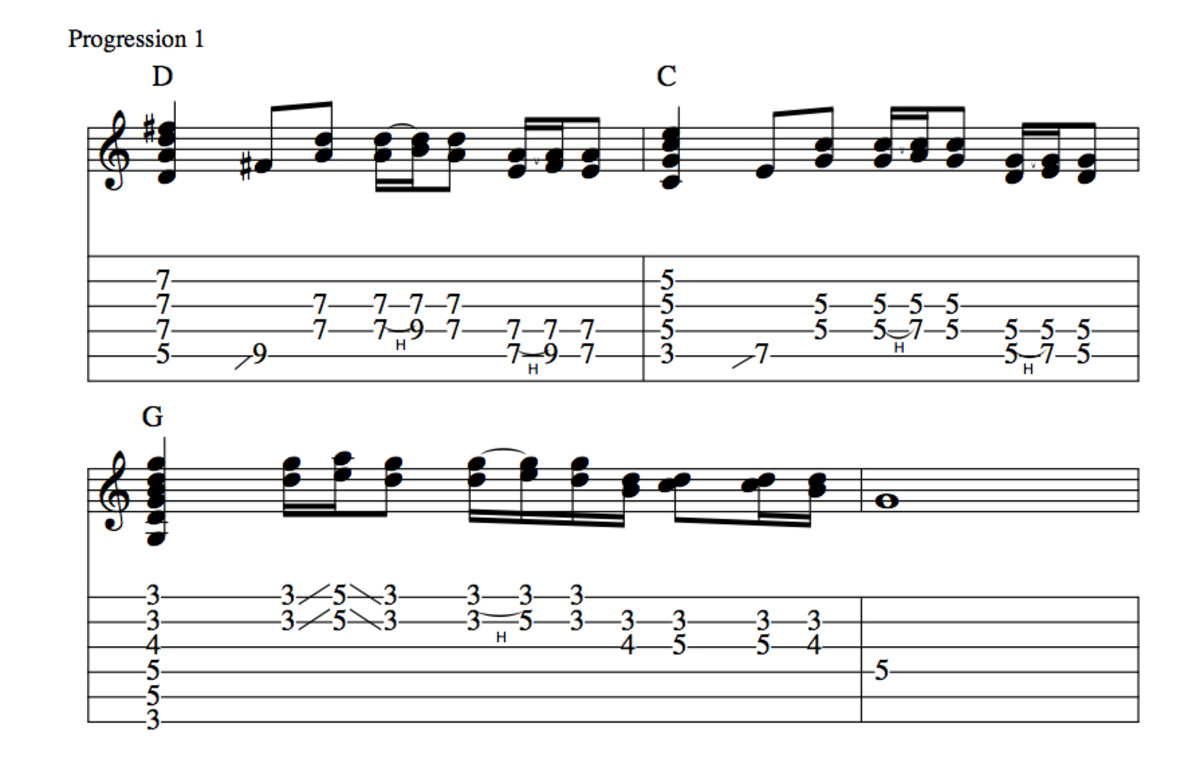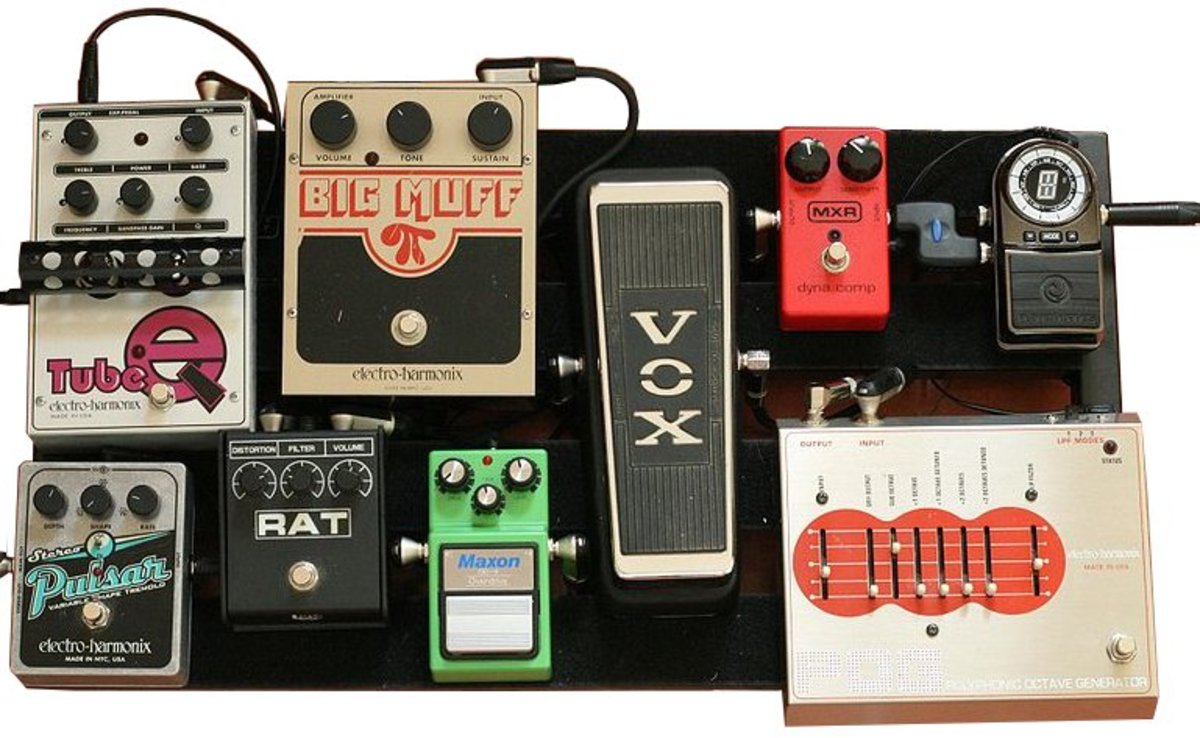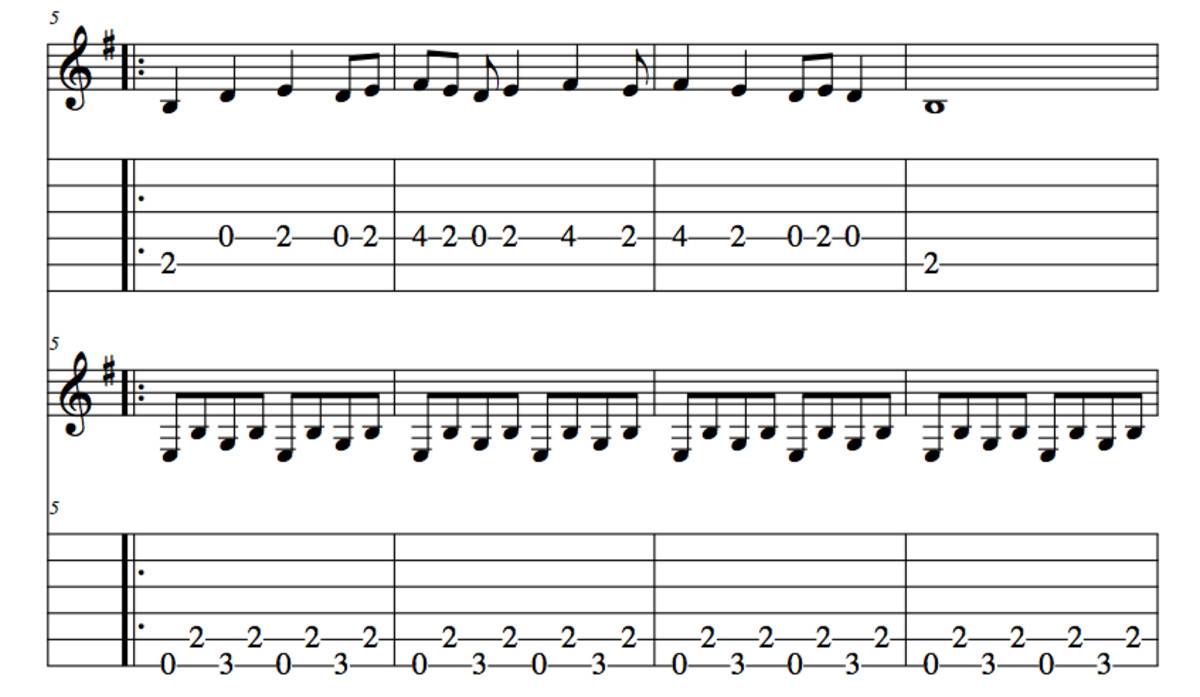Guitar Lesson For Beginners
Getting started on guitar
I teach guitar at a local college - here are some tips to ensure that you get off to a good start when you're learning guitar. This hub will be about the many different ways you could approach learning the guitar, because one of the reasons that it is the greatest instrument* is the vast number of different styles and sounds that are available.
*This is debatable, but only up to a point.
My new hub First Guitar lesson has more info on learning guitar chords and easy guitar tab.
- First, let's challenge a commonly-held assumption - that you should start on a cheap guitar!
- I have seen so many players fail because they are using an unplayable instrument - the better it sounds, the more time you are likely to spend with it, and so long as you get a secondhand guitar that is good quality, you shouldn't lose much on a resale. Plus there is the fact that having made a bigger investment, you will want to protect that investment by actually doing some practice!
The right guitar?
Make sure that the guitar is set up properly, that is -
- The action or height of the strings off the fretboard is as low as possible,
- That the strings are as light gauge as possible,
- That the neck is comfortable for your hand size.
- Using a capo can help if your guitar action or string height is not ideal. As the frets get smaller as you move up the fingerboard, you can also reduce some of the stretching for C chord shapes.
If any of these three conditions is not met, you are loading the dice against making a good start on guitar. See my hub How to buy a guitar.
There are many things you can do to create the right, conducive environment for learning an instrument - factors which may make it 50% more likely that you'll succeed.
Guitar tuners
Although tuning by ear is a worthwhile project to work on, it's so much easier to use a digital guitar tuner. I like the clip-on variety, as they work by sensing the guitar vibrations and you don't need to plug them in. Usually, the tuner lights up in green when a string is in tune. Give the tuner time to react - strike the string once, and wait. Then damp the string before trying again.
Playing songs
Nearly all songs are in a specific key. That just means you will find mostly the same chords in every song that is in the same key.
Example: in the key of G there are three major chords and three minor chords.
Major chords are - G, C, D.
Minor chords are Em, Am, Bm
Take an easy song such as Wonderful Tonight (Eric Clapton)
The song will only use chords from this list, and in fact it will just use 4 of these chords, G, D, C, Em. Now you understand the approach, you can use the same info for any other song in this key. Although there may be one or two extra chords added, in general the 6 chords listed are all you need.
My other hub Guitar Chords 101 has all the basic chord shapes you need.
Essential chords: C, F, G, D, A, E, Em, Am
Then B7, A7, G7, D7.
Practice time
- Practice in 10 minute sessions, then do something else. You could repeat these sessions as many times as you like, but aim to do at least two a day. Less time commitment that this probably won't enable you to learn the guitar, as partly you are working on finger strength and muscle memory.
- Play along with CDs, especially backing track CDs.
- Sing everything you play, and sing the lyrics to songs you are learning.
- Spend a bit of time on basic piano and keyboard skills.
- Leave the guitar out of its case. If it lives in the case, you will never play it. If it is out on a sofa, you can use those odd bits of free time to really improve fast.
Guitar Suggestions
Here are some pointers when selecting a guitar:
- Generally buy second hand
- Mainstream guitars will hold their value better
- Fender Telecaster or Stratocaster, Taylor acoustics are all good choices. For electrics, you don't really need an amp at first.
- Restring with light gauge strings
Areas of Guitar Playing
Here are some of the aspects of guitar playing that may not have occurred to you -
- Slide Guitar (playing with a slide or bottleneck, see my hub Guitar in Open G tuning, slide guitar)
- Lap steel playing (using a slide, but holding the guitar flat on your knees)
- Basic music theory, how chords are used together in harmonised scales.
- Learn harmonised scale chords starting on string 6, 5, and 4. Then work on switching mid-sequence from one string group to another.
- Travis picking (The fingerpicking pattern used by Paul Simon, many great country players)
- Guitar in DADGAD tuning (as used widely in Irish and Celtic music)
- Guitar in Open G tuning (as used by Keith Richards, Ry Cooder)
- Guitar in Open C tuning
- Dropped D tuning (very useful for songs in the key of D, as it extends the bass response of the guitar)
- Jazz guitar (swing style) (learning some jazz standards is a great way to improve your playing)
- Jazz chords
- Jazz Guitar, chord melody style (where the tune and chords are played together)
- Blues guitar, pentatonic scales.
- Acoustic guitar with capo (the guitar sound of James Taylor and The Beatles)
- Using a capo to change key
- Ukelele
- Bass Guitar (the lowest 4 strings of guitar are tuned the same, meaning that you can easily transfer riffs from guitar to bass)
- Songwriting
- Flamenco and Spanish guitar (good to understand some of the basics at least)
- Recording
- Pedal steel guitar
- dobro playing
- 12-string guitar
- Baritone guitar
- nylon -string electric guitar
- Reading tab (as so much guitar music is written in tab, it's really worth investing some time on this.)
- Working with Guitar DVDs, Youtube material,Guitar reference books (such as Guy's Grids)
Structuring your practice time
You could try being methodical in your practice time. Focus on these areas:
- Review what you already know
- Work on new songs, chords and scales
- Work on riffs
- Work on right hand stuff like muting, Travis picking, strumming with a pick, ideally with a drum machine or backing tracks.
- Learn songs from memory - chords, melody lines, lyrics.
- Try playing in different styles. On a practical level - rock, jazz, blues, country.
- Practice reading tab
- Practice reading chord charts
- Learn to read standard notation at a basic level.
- Play along with tracks, and improvise.
Ask a friend
If you don't have any guitar- playing friends, now would be a good time to make some! There is an unwritten rule amongst guitarists that we help out our 6 - string brethren, and you'll see this on the internet - in general, it's a very supportive community.
You will probably know someone who plays, maybe at work, in church communities, in schools or college. Just ask for some help, but it's better if you are specific about certain styles or songs that you like.
Public library resources
- This may sound old-fashioned - but your local library probably stocks all kinds of guitar songbooks, guitar tab and guitar CDs. A good plan would be to work through The Beatles songbook, or songbooks by any of your favourite artists. Dylan songs are also essential, and often are based around just 3 or 4 chords, making them ideal material for the beginner.
Guitar Lessons
With the vast amount of material on the internet, you might think that lessons are no longer essential. I don't think that week-in, week-out lessons are essential, but at least a few can save you a lot of time and frustration in the early stages. Why not find someone in your area and have 3 or 4 lessons? - it will really pay off for most people. Most music stores will have a list of local guitar teachers.
Youtube is a great source of free guitar lessons. You could also observe how the guitar is being held (usually over your left leg) and watch fingering and chord techniques.
More resources
I've always been a fan of Guitar Player magazine, although to be fair there is very little lesson material for the beginner, and you will get more out of it if you can already play to a good standard. The UK publication Guitar Techniques is also very good.
Now that Guitar Player is available as a digital magazine it's even better.
zinio.com is a site that offers a huge range of digital magazine downloads, where you can make substantial savings on the normal price. As you can zoom in on guitar tab - which is often hard to read - it really helps in learning new guitar material

